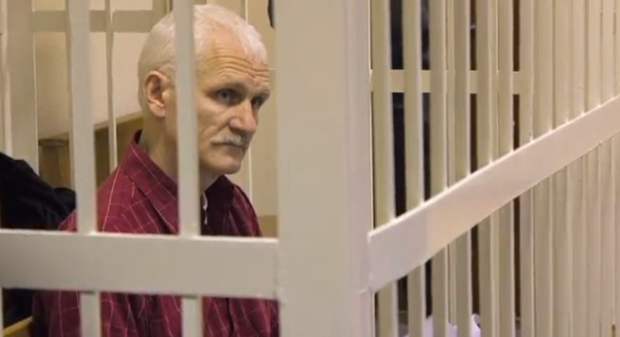Belarus: A distorted media market strangles independent voices
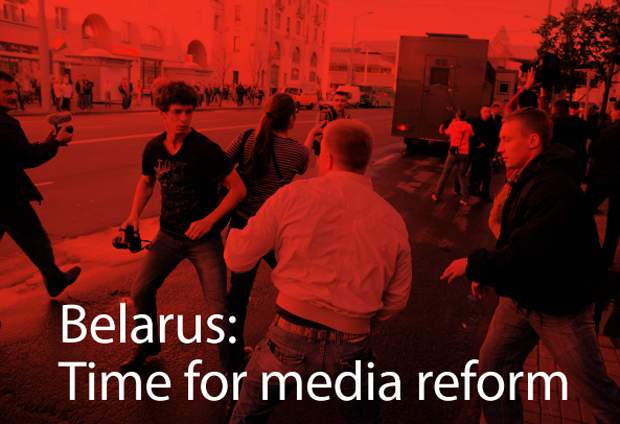
Read the full text of the policy paper “Belarus: Time for media reform” here. | Поўны тэкст аналітычнага дакладу “За рэформы медыя ў Беларусі” можна пабачыць тут.
This article is the second of a series based on the Index on Censorship report Belarus: Time for media reform.
The present media market started to take shape at the beginning of 1990s as Belarus became an independent state after the Soviet Union disintegrated. Unlike other post-Soviet states, the process of the denationalisation and privatisation of the state media was not in fact ever launched leaving state control and ownership over most of national media. While a number of independent media outlets were established in the 1990s, very few have managed to survive.
Current media are significantly affected by the political and economic situation after the presidential election of December 2010 that was followed by a severe clampdown on political opposition and civil society and periods of financial instability.
The authorities keep tight regulatory and economic control over the news media market. State-run media that are used as means of government propaganda enjoy significant financial support, while independent news media face economic discrimination that makes their position in the market more vulnerable.
Broadcast media
Broadcast media remain the primary source of information for most Belarusians. The overall reach of television is 98.4% of the population aged over 15, and its share in the media advertising market is over 50% of the total. This dominant position of television is the reason the state keeps this sphere under strict control. Most of broadcast media in Belarus are state-owned, and they enjoy significant financial support from the authorities. The state budget of Belarus for 2014 allocated 548 bn roubles (about £34m) for direct support of television and radio.
There are 262 TV and radio stations registered, 178 of them–68% of the total–are owned by the state. There is no formal Public Service Broadcaster (PSB) with an independent board and a commitment to impartiality. Four national channels are owned by the National State Television and Radio Company which also owns five radio channels and five regional TV and radio companies. Two more national channels, ONT and STV, are formally joint stock companies, but they are not publicly listed, and all their founders are state companies.
There is not a single independent national TV channel or a public service broadcaster in the country. Independent broadcast media that operates from abroad face restrictions. For instance, Belsat TV channel, which has been broadcasting in Belarusian from Poland since 2007, has been refused permission to open an official editorial office in Belarus. Belsat’s reporters face constant pressure and are subjected to warnings and detentions.
At the same time, a decision taken in November 2013 to prolong accreditation in Minsk of the editorial office of Euroradio, an independent radio station that also broadcasts in Belarusian from Poland, can be considered as a positive step.
The general process of licensing and frequency allocation in Belarus is complicated, not transparent and is controlled entirely by the government through licensing and frequency allocation processes.
Printed media
Economic leverages are used by the authorities of the country to control the printed news media market in Belarus. While state-owned newspapers have preferences in advertising market and distribution, independent publications fail to enjoy equal conditions, being restricted from distribution systems and advertising. Economic difficulties threaten operations of non-state socio-political newspapers, and thus restrict the access of the audience to independent sources of information.
The majority of printed media – 1,146 out of the total of 1,556 registered in Belarus as of 1 January 2014 – are privately owned. Most of the non-state newspapers are not news publishers but mainly advertising or publications for entertainment. According to BAJ, there are less than 30 socio-political newspapers, both national and regional, in Belarus that are publications with actual news journalism.
There is a significant amount of evidence to suggest that the non-state owned press in Belarus faces economic discrimination. Direct state subsidies to the state-owned printed media in 2014 are projected to be 64 bn roubles (about £4 m). It is claimed by the editors of several non-state newspapers, that the costs of paper and printing for independent newspapers are higher than for state-owned ones.
Another form of direct economic discrimination by the government is the influence of the state over the advertising market. The economy of Belarus is dominated by the state, with 70 per cent of its GDP being the output of state-owned companies. In practice this gives opportunities for the direct interference of the government in the distribution of advertising revenues. It is also the case that there is compulsory subscription to state-owned newspapers, both national and local, for employees of state-owned enterprises and organisations.
There is direct state intervention in the distribution of independent newspapers, which prevents their sale. At least eleven independent publications face restrictions to their distribution via state-run retail press distribution and subscription networks (Table 1). The distribution ban was imposed on the eve of the presidential election of 2006, when at least 16 independent newspapers were excluded from the subscription catalogue of Belposhta (Belarusian Post) and 19 had their contracts with Belsayuzdruk retail sales system cancelled. Due to the distribution restrictions several of them ceased to exist. Most of those that survived remain barred from state distributors and have had to either develop their own distribution systems or move completely online.
The authorities of the country persistently refuse to acknowledge the problem of distribution restrictions. Dzmitry Shedko, Deputy Minister of Information, wrote to Index request that “non-state media equally with state ones have a free access to state printing facilities and possibilities to distribute their publications through state press distribution structures.” The Deputy Minister points out that the law provides for the freedom of contract, and the authorities cannot interfere with the will of distribution companies to sign contracts with any particular mass media outlet.
In practice the reality is very different. In 2008 two independent newspapers, Nasha Niva and Narodnaya Volia, were returned to state distribution systems as a part of commitments the authorities of Belarus made to the European Union in order to re-launch a political dialogue with the EU. It proves a decision to lift the distribution restriction is political and can be dictated by the state.
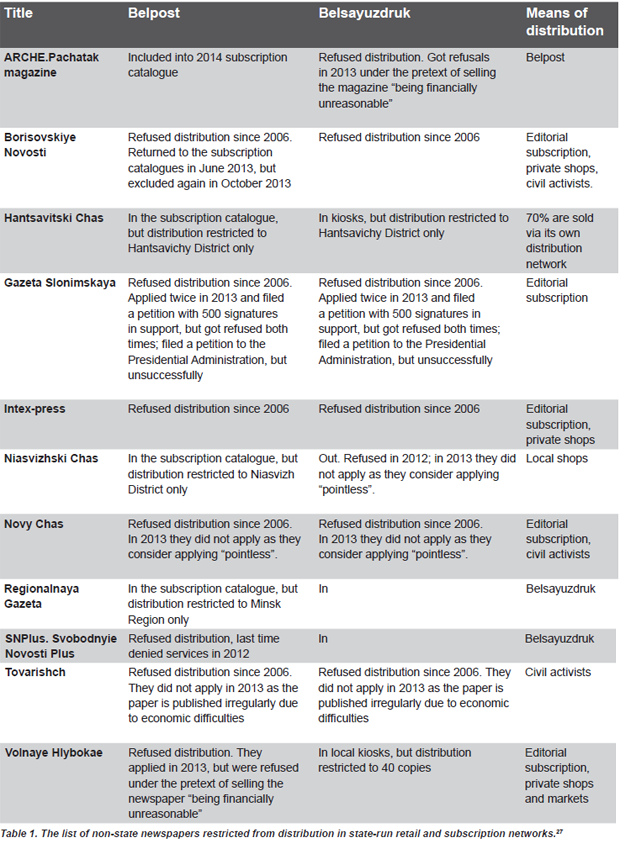
Online media
The internet in Belarus is developing extensively, although it cannot still boast of the same audiences as broadcast media. Over 4.85 m Belarusians aged over 15 access the internet–12% more than a year ago–and over 80% of those with access go online every day. Sixty-eight percent of Belarus’s internet users go online through a high-speed broadband connection. The internet remains a relatively free domain of freedom of expression in the country, despite recent attempts by the government to put it under tighter control, as revealed in Belarus: Pulling the Plug report, produced by Index on Censorship in January 2013.
Growing internet penetration and the restrictions traditional media face offline has led to a significant development of online news media. For instance, several independent publications that stopped issuing printed versions due to distribution restrictions now only exist as websites. This is the case with Belorusskaya Delovaya Gazeta, once one of the leaders of non-state press, Salidarnasc or Khimik regional newspaper. Online versions of several existent newspapers reach a larger audience that their printed versions.
In general, independent online publications enjoy significantly greater popularity among internet users than pro-regime websites of state-run media.
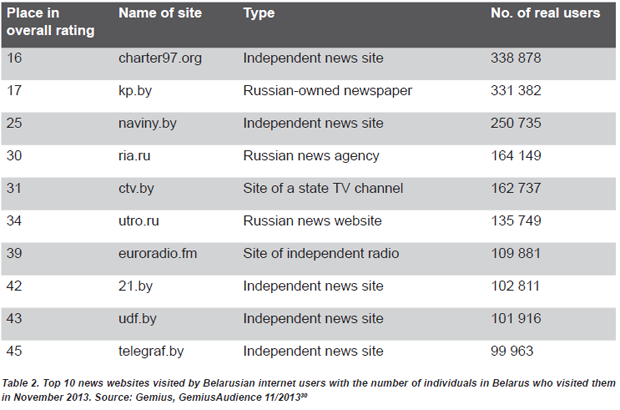
This table represents online news publications only, but does not include the news sections of larger internet portals. It should be noted that they are much more popular then dedicated news publications. For instance, the news section of the largest Belarusian portal TUT.BY is visited by about 1 m Belarusians aged over 15 monthly. News sections of major Russian portals Mail.ru and Yandex.ru are ranked 2nd and 3rd as sources of online news for visitors from Belarus.
The two important trends of Belarus’s online news market are:
• Dedicated news websites are not the most popular online destinations for Belarusians;
• Russian websites have a significant market share in terms of Belarusian audience.
The top 20 news publications have a joint reach of no more than 25% of the total number of Belarusians online. If news sections of major portals are taken into consideration, this share is still around 45%. At the same time, Mail.ru, a Russian portal that is the most popular website among the Belarusian audience, has an audience share of 61.7% alone. Users appear to favour reading news on portals, where they can get other services and on news aggregators.
Social media sites are visited by 72.5% of Belarusian internet users, with Russian Odnoklassniki.ru and Vkontakte leading in this group as well. Four of the six most popular websites in Belarus are Russian portals or services.
There are serious limitations to the development of the online news media market. This is not due to government restrictions, but primarily due to economic factors. The total annual volume of the online advertising market in Belarus in 2013 is estimated to be $10.5 million US dollars. Despite 50% growth to 2012, Belarus still has one of the lowest advertising expenditure budgets per internet user in Europe. The market is very much dominated by its leaders, including Russian media companies that have significant resources to expand and currently enjoy a significant market share.
Case study: State and non-state press: Different media realities
Index on Censorship in cooperation with Mediakritika.by, a Belarusian project dedicated to analysing and monitoring the national media landscape, conducted field research into the content published by state-owned and independent media (that is privately owned media that is free from political direction from the president and government). The research found clear differences between editorial policies of the media based on their ownership including the topics they cover and their approaches to coverage. The difference was particularly noticeable during major political campaigns, such as elections.
The research looked at the content of six Belarusian media outlets, analysed as presented at their websites in October 2013. They are two leading information agencies, state-owned BELTA and privately owned BelaPAN (presented online as Naviny.by), and four national newspapers, state-owned Sovetskaya Belorussiya (SB) and Zviazda, and independent Narodnaya Volia (NV) and Nasha Niva (NN).
The content was analysed in terms of presence of several specific topics (quantitative) and the way they were approached by the media (qualitative). The table below represents the number of articles covered or mentioned by the specified topics from the respective media outlets in October 2013:
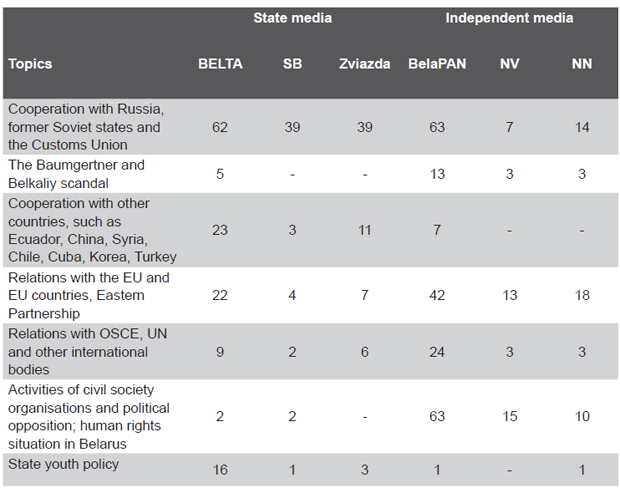
On the first category, the coverage of relations with states from the former Soviet Union and the creation of a Customs Union (between Russia, Belarus and Kazakhstan) which is part of the official foreign policy of Belarus, the state news agency BELTA dedicates significant coverage. BELTA also gives significant coverage to successful foreign policy partnerships by the Ministry of Foreign Affairs and countries in South-East Asia and Latin America. The state media’s significant coverage of the Customs Union and relations with Russia is not matched by coverage of Belarus – EU relations. The analysis found there was little coverage of foreign policy analysis except the opinions of state officials.
The independent media also pays significant attention to the Russian – Belarusian relations, but there is significantly more coverage of Belarusian relations with the EU and other international institutions and organisations. For example, the number of news items on the “eastern” and “western” vectors produced by BelaPAN is almost the same; BELTA pays twice more attention to ex-Soviet countries, Russia first of all, than to cooperation with the West.
Even more dramatic differences are noted in the way state and independent media cover domestic politics. Within the state media politics is associated with (and consists of little more than) the statements and public speeches of the President. State media outlets even have “President” as a separate news section. BELTA’s “President” section, for instance, had more than 80 news items on activities and statements of the head of the state in October 2013.
The most significant difference between the state-owned media and the privately owned media is that there is almost no mention of the activities of the political opposition, while the independent media provides significant coverage of the activities of opposition political parties but also independent trade unions, civil society organisations and activists.
Human rights issues or repressive measures taken by the authorities are widely covered by the independent media. As can be seen in the table, the state media almost entirely ignores these issues. While the recent scandal with Vladislav Baumgertner, the CEO of the Russian Uralkaliy company, who was arrested in Minsk,34 generated significant headlines in the independent media in Belarus – and the media in Russia as well – it was hardly covered by the Belarusian state media; their coverage was reduced to quotes from President Lukashenko on the matter.
There have been no visible improvements of the situation with traditional news media since 2009 in Belarus. The state keeps dominating the broadcast media market and preserves tight control over printed publications. State-owned media are used as a tool for government propaganda, while independent socio-political press faces discrimination that limits their operational capacity and thus restricts the development of free and pluralistic media in the country. The internet re-shapes the news media market as it provides new opportunities for free flow of information and ideas, but its full-scale development as a free speech domain is hindered by economic peculiarities and attempts of state regulation.
Belarus media landscape: Recommendations
All forms of economic discrimination against non-state independent press should be eliminated, in particular:
• independent publications should be treated equally by the state system of press distribution and Belposhta subscription catalogues;
• the state has a pro-active duty to protect and promote freedom of expression and so should investigate anti-competitive practices including the charging of unequal prices for paper and the distribution services for publications for different types of ownership.
Reforms of the Belarusian media field should be launched, including de-monopolising of the electronic media, introducing public service media and creating a competitive media market. The outline of these reforms should result from a dialogue with professional community and civil society of the country.
Part 1 Belarus: Europe’s most hostile media environment | Part 2 Belarus: A distorted media market strangles independent voices | Part 3 Belarus: Legal frameworks and regulations stifle new competitors | Part 4 Belarus: Violence and intimidation of journalists unchecked | Part 5 Belarus must reform its approach to media freedom
A full report in PDF is available here
This article was published on 12 February 2014 at indexoncensorship.org

